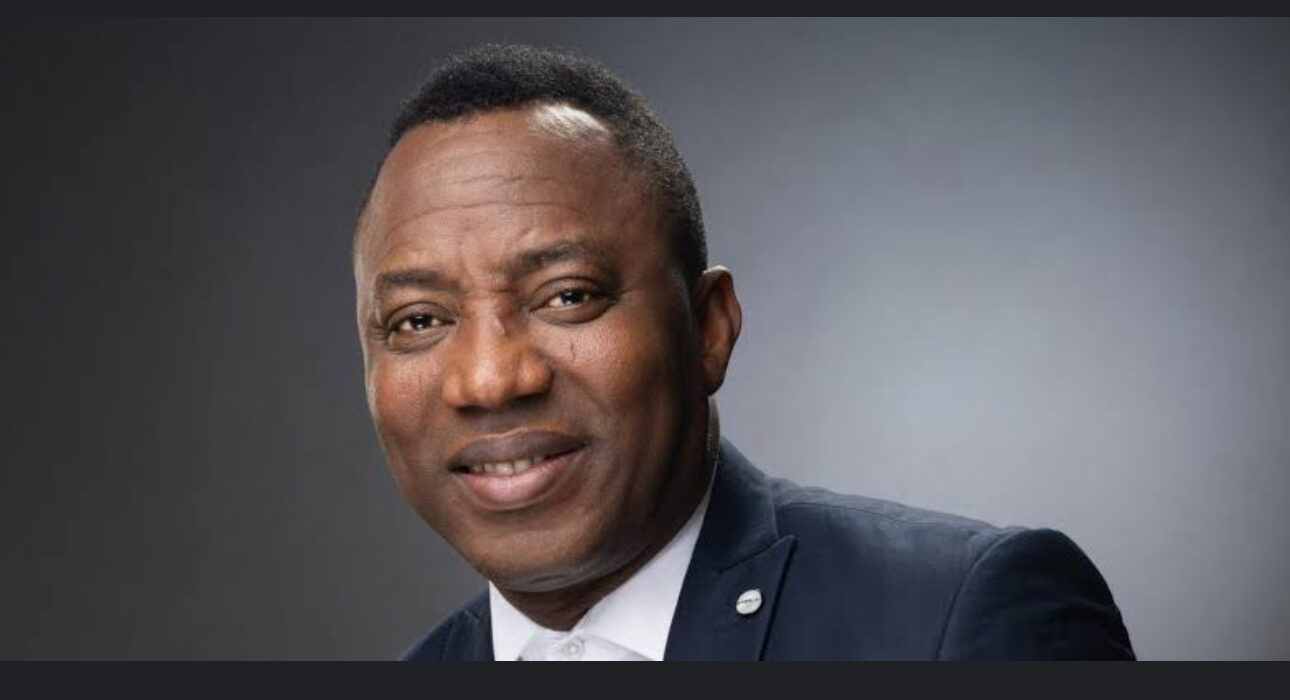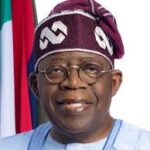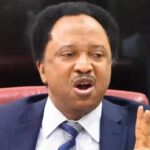Sowore Slams Tinubu Over Alleged Tribalism, Condemns Tenure Extensions for Security Chiefs

Human rights activist and presidential candidate of the African Action Congress (AAC), Omoyele Sowore, has launched a scathing attack on President Bola Tinubu, accusing him of deepening ethnic divisions in Nigeria and rewarding what he described as “gross incompetence” within the country’s top security institutions.
Sowore, in a series of public statements and social media posts, labeled Tinubu as “Nigeria’s worst leader on tribalism,” alleging that the President’s appointments and policy decisions have been driven by ethnic loyalty rather than national interest or merit.
According to the activist, Tinubu’s administration has demonstrated a disturbing trend of favouritism that undermines national unity.
He claimed that appointments in key sectors, particularly within the security and immigration services, have reflected an ethnic imbalance that is harmful to the federal character principle and to public confidence in the government.
Sowore’s criticism intensified following the recent extension of the tenures of several top officials, including the Comptroller-General of the Nigeria Immigration Service, Kemi Nandap; the Inspector-General of Police, Kayode Egbetokun; and the head of the Nigeria Customs Service.
He condemned these extensions as unjustifiable and politically motivated, accusing the President of using them to consolidate power and maintain influence ahead of the 2027 elections.
In his remarks, Sowore described the continued retention of IGP Egbetokun as “illegal,” arguing that the extension contradicts the retirement policies governing the Nigerian Police Force. He also alleged that the police force under the current leadership is “broken and demoralized,” with junior officers earning as little as ₦57,000 monthly and police stations receiving inadequate operational funds of ₦30,000 per quarter in some cases.
“The system is not just inefficient; it’s rotten from the top. You don’t fix a failed system by extending the tenure of those who’ve helped destroy it,” Sowore said.
Sowore was equally critical of Kemi Nandap’s tenure extension, claiming that she had used her position to harass political opponents during the #EndBadGovernance protests and contributed to a culture of repression within the immigration service. He insisted that her reappointment was not based on merit or performance but was rather a political reward.
“This is not just a failure of leadership—it is a betrayal of the Nigerian people. Competence has been abandoned, and the price is being paid in lives, livelihoods, and lost hope,” he declared.
The activist also warned that the strategy behind these extensions could be part of a larger plan to manipulate electoral processes in the lead-up to the 2027 general elections. He cautioned Nigerians to be vigilant, accusing the Tinubu administration of grooming loyalists in strategic institutions to tilt future political outcomes.
Sowore’s statements have reignited debate on the legality and implications of extending the tenures of top public officials, especially in critical institutions that ought to be neutral and performance-based.
As of press time, the Presidency has not issued an official response to Sowore’s comments. However, sources within the political establishment have dismissed the activist’s remarks as politically motivated.
Despite the pushback, Sowore insists that his criticism is grounded in patriotism and a call for accountability. “I will not stop speaking truth to power,” he said, adding that Nigeria deserves a leadership that values unity, justice, and merit above ethnic calculations and political loyalty.









